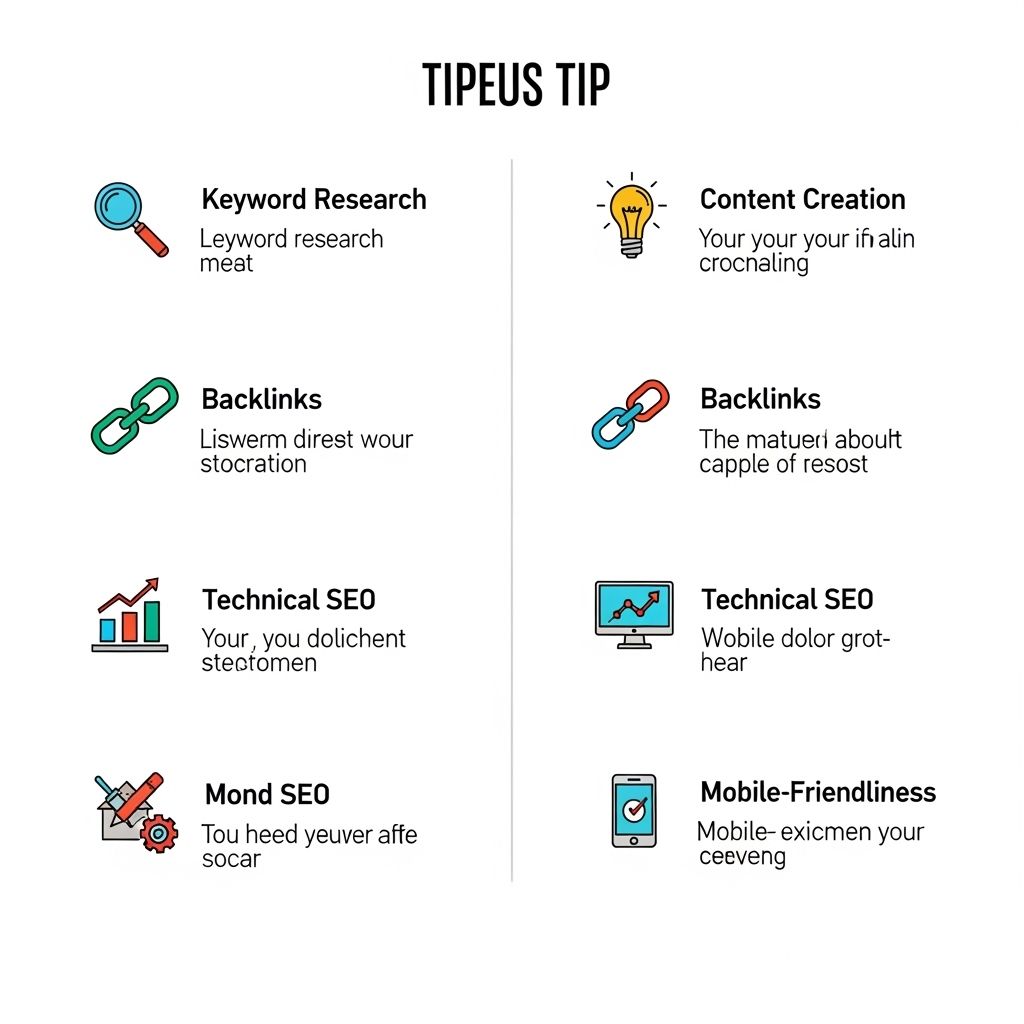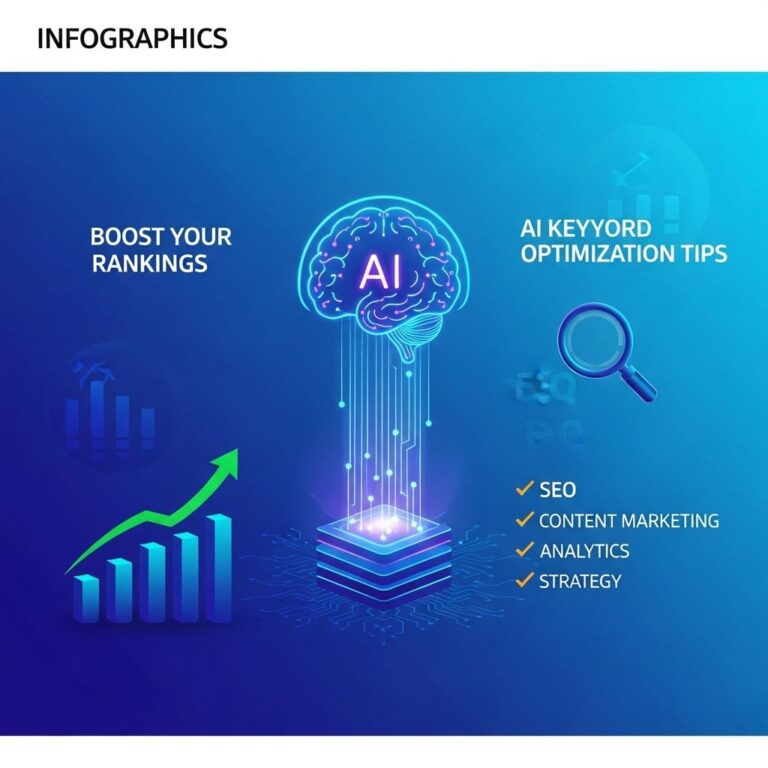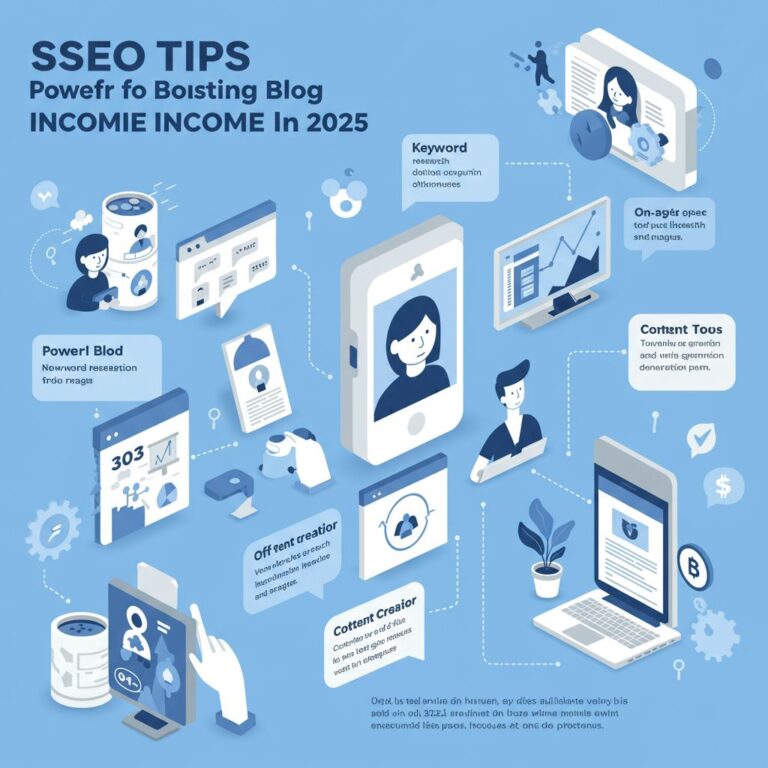Search Engine Optimization (SEO) is an essential part of digital marketing, enabling websites to rank higher in search engine results and attract organic traffic. For beginners venturing into the world of SEO, it can be overwhelming to navigate through the myriad of strategies and best practices. However, mastering the basics of SEO can yield significant benefits for your website’s visibility and performance. In this article, we will explore ten actionable SEO tips designed specifically for beginners.
Table of Contents
Understanding SEO Basics
Before diving into specific tips, it’s important to grasp the fundamental concepts of SEO. At its core, SEO involves optimizing your website to make it more appealing to search engines. The goal is to increase your site’s visibility, drive traffic, and ultimately convert visitors into customers. Key components of SEO include:
- On-Page SEO: Refers to optimizing individual pages on your website.
- Off-Page SEO: Encompasses external factors that influence your site’s rankings, such as backlinks.
- Technical SEO: Involves optimizing the backend structure of your site for better crawling and indexing.
1. Conduct Keyword Research
Keyword research is the backbone of effective SEO. It involves identifying the words and phrases your target audience uses to search for information related to your business. Here are some tools to help you conduct keyword research:
- Google Keyword Planner: A free tool that helps you find keywords and see their search volume.
- SEMrush: A comprehensive tool for keyword analysis and competitive research.
- Ahrefs: Excellent for discovering keyword opportunities and tracking organic traffic.
2. Optimize Your Content
Once you have your target keywords, it’s crucial to optimize your content around them. Here are some best practices:
- Use Keywords Naturally: Incorporate your primary keyword in the title, headings, and throughout the content, but avoid keyword stuffing.
- Create High-Quality Content: Aim for informative, engaging, and valuable content that resonates with your audience.
- Utilize Relevant Subheadings: Break up your content with
<h3>tags to improve readability and make it easier for search engines to understand.
3. Improve Meta Tags
Meta tags are snippets of text that describe a page’s content. They play a critical role in SEO:
| Meta Tag | Importance |
|---|---|
| Title Tag | Appears in search results; should include the main keyword and be enticing to click. |
| Meta Description | A brief summary of the page; it should encourage users to click through. |
4. Enhance Website Speed
Website loading speed is a significant factor in user experience and SEO. A slower website can lead to higher bounce rates. Follow these tips to enhance your site speed:
- Compress Images: Use tools like TinyPNG to reduce image file sizes without losing quality.
- Minimize HTTP Requests: Limit the number of elements on your page to improve loading times.
- Utilize Browser Caching: This allows visitors to store some data on their devices to speed up future visits.
5. Leverage Mobile-Friendliness
With mobile searches on the rise, ensuring that your website is mobile-friendly is essential. Here’s how:
- Responsive Design: Use a responsive design that adapts to any screen size.
- Test Mobile Usability: Use tools like Google’s Mobile-Friendly Test to check your site’s performance on mobile devices.
6. Build Quality Backlinks
Backlinks are links from other websites to yours and are a key ranking factor. Here are some strategies to build quality backlinks:
- Guest Blogging: Write guest posts for reputable blogs in your industry.
- Content Marketing: Create shareable content like infographics or comprehensive guides.
- Networking: Engage with other bloggers and influencers to foster relationships that could result in backlinks.
7. Utilize Social Media
While social media signals may not directly affect SEO rankings, they can enhance your online presence and drive traffic to your site:
- Share Your Content: Promote your blog posts and articles on social media platforms to reach a wider audience.
- Engage with Your Audience: Respond to comments and messages to build a community around your brand.
8. Monitor Your Analytics
Tracking your website’s performance is vital to understanding what works and what doesn’t. Google Analytics is a powerful tool for monitoring:
- Traffic Sources: Identify where your visitors are coming from.
- User Behavior: Analyze how users interact with your site and what pages they visit.
9. Stay Updated with SEO Trends
SEO is an ever-evolving field. Staying updated with the latest trends and algorithm changes is crucial:
- Follow SEO Blogs: Websites like Moz, Search Engine Journal, and Neil Patel offer valuable insights.
- Join SEO Communities: Engage in forums and groups that focus on SEO discussions and sharing knowledge.
10. Be Patient and Persistent
SEO is not a one-time effort; it requires ongoing work and patience. Results may take time, but consistent efforts can lead to substantial improvements in your rankings and traffic.
By implementing these ten SEO tips, beginners can lay a solid foundation for their digital marketing efforts. Remember that SEO is a long-term strategy, and continuous learning and adaptation are key to success in this dynamic landscape.
FAQ
What are the essential SEO tips for beginners?
Beginner SEO tips include keyword research, optimizing on-page elements, creating quality content, improving site speed, and building backlinks.
How important is keyword research in SEO?
Keyword research is crucial as it helps identify the terms your target audience is searching for, allowing you to tailor your content effectively.
What is on-page SEO and why does it matter?
On-page SEO refers to optimizing individual web pages to rank higher and earn more relevant traffic. It involves content, HTML source code, and user experience.
How can I improve my website’s loading speed?
You can improve loading speed by optimizing images, leveraging browser caching, minifying CSS and JavaScript files, and using a Content Delivery Network (CDN).
What role do backlinks play in SEO?
Backlinks are important because they signal to search engines that your content is credible and valuable, which can improve your site’s authority and rankings.
How often should I update my website for SEO?
Regular updates are beneficial for SEO. Aim to refresh your content, add new articles, and update existing pages at least every few months to keep your site relevant.









